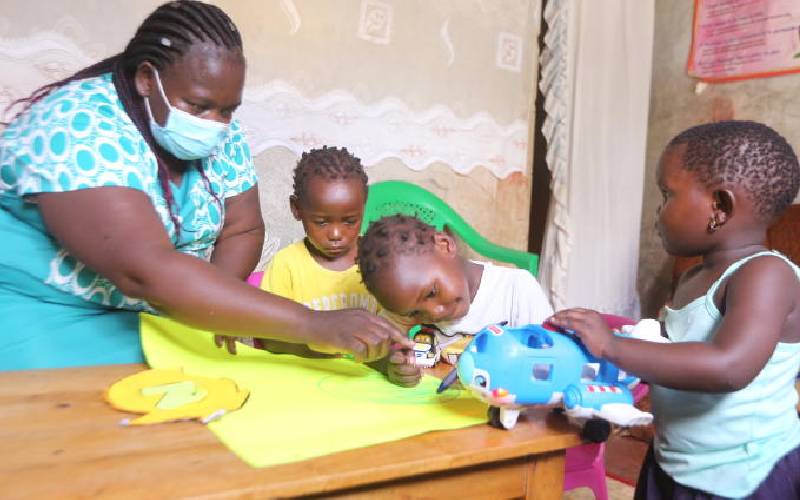×
The Standard e-Paper
Home To Bold Columnists

Mary Lubia assists her PP1 children in the implementation of Competency-Based Curriculum at her home in Kisumu. [Collins Oduor, Standard]
For the past week, Kenyans have been talking about same thing and surprisingly, it is not politics but Competency Based Curriculum